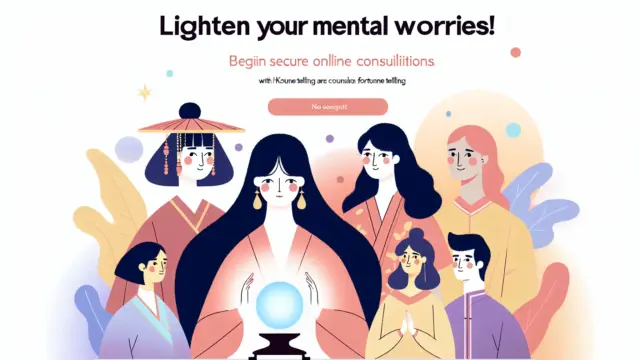Understanding the complexities of emotions can be a journey filled with twists and turns, especially when it comes to loneliness. When men express feelings of isolation, it often hints at deeper needs and societal pressures that affect their relationships. In this article, we’ll explore the psychology behind men’s declarations of loneliness, uncovering what lies beneath the surface and how you can better understand your partner’s emotional landscape.
Navigating through these feelings is essential not just for men but for all of us in a relationship. By delving into the essence of loneliness and the hidden needs behind it, we can learn effective communication techniques to foster connection and intimacy. Let’s embark on this exploration together and discover how to transform loneliness into a stepping stone for deeper love and understanding.
- Discover the core reasons why men express feelings of loneliness.
- Understand the hidden emotional needs that often accompany loneliness.
- Learn communication techniques to strengthen your relationships.
Why Do Men Say They Feel Lonely?
The Essence of Loneliness
Loneliness can often feel like an invisible weight, pressing down on those who experience it. For many men, admitting they feel lonely can be particularly challenging due to societal expectations about masculinity. This emotional struggle is not just about being alone; it often reflects a deeper yearning for connection and understanding. When men voice their feelings of loneliness, it’s essential to pay attention to what they are truly expressing.
This essence of loneliness often stems from a lack of emotional intimacy in relationships. Many men may find it difficult to open up about their feelings, leading to a sense of isolation even when they are surrounded by others. This emotional gap can create a cycle where loneliness begets further withdrawal, making it harder to reach out for support.
Understanding this emotional context is crucial for partners. By recognizing that loneliness is not just a fleeting feeling but a sign of deeper emotional needs, we can approach the situation with more empathy and insight.
- Loneliness reflects a desire for connection.
- Emotional intimacy is often lacking in relationships.
- Recognizing loneliness can lead to deeper understanding.
Social Pressures
The pressures that society places on men can significantly influence how they express their feelings. From a young age, many men are taught to be stoic and self-reliant, often equating vulnerability with weakness. As a result, when they say they feel lonely, it may be a way of breaking through these societal barriers, seeking validation, or simply wanting someone to acknowledge their experiences.
Moreover, in our fast-paced world, the pressure to maintain a perfect image can further exacerbate feelings of loneliness. Men might feel they should always be strong and composed, leading them to suppress their emotions. This societal expectation can create a facade that masks their true feelings, making it even harder for them to seek help or connect meaningfully with others.
As partners, it’s important to create a safe space for open communication. Encouraging men to express their feelings without fear of judgment can help dismantle these societal pressures. By fostering an environment where vulnerability is welcomed, we can help bridge the gap of loneliness that many men face.

If you found this article insightful, you might also appreciate our piece titled What Does a Man’s Bad Mood Reveal? Understand His Attitude to Deepen Your Relationship!, which delves into the psychology behind men’s behaviors and how understanding their moods can foster deeper connections. Exploring these emotional dynamics can be crucial for improving communication and building stronger relationships.
- Societal expectations can pressure men to be stoic.
- Vulnerability is often seen as a weakness.
- Creating a safe space for expression can help.
- Open communication can reduce feelings of isolation.
Key Points to Understand Male Psychology
The Difficulty of Emotional Expression
When we talk about the psychology of men saying they’re lonely, it’s crucial to recognize how challenging it can be for them to express their emotions. Many men have been socialized to see emotional vulnerability as a sign of weakness. This upbringing makes it tough for them to communicate their feelings openly, leading to a significant disconnect in relationships. Often, they’ll mask their loneliness with silence or anger, making it essential for partners to understand the underlying emotions at play.
This difficulty extends to their relationships as well. Men may avoid discussing their loneliness for fear of being perceived as needy or weak. This can create a barrier that prevents them from forming deeper connections with their partners. When loneliness is left unaddressed, it can spiral into more severe emotional issues, making it even more vital for partners to learn how to encourage open dialogue about feelings.
Creating an environment where emotional expression is welcomed can make a world of difference. By actively listening and responding with empathy, partners can help men feel safer in sharing their inner thoughts and feelings. This process not only helps alleviate loneliness but also strengthens the bond between partners.
- Men often struggle to express vulnerability.
- Emotional barriers can lead to deeper issues.
- Encouraging open dialogue fosters connection.
Hidden Needs Behind Loneliness
Beneath the surface of loneliness, there are often hidden needs that deserve attention. For many men, feelings of isolation stem from a desire for connection, reassurance, and support. They might crave emotional intimacy but struggle to articulate these needs. When they express that they feel lonely, it can be a signal that they are seeking validation or understanding from their partners.
It’s also worth noting that men may not always recognize these hidden needs themselves. They might associate their loneliness with external factors, like work stress or societal expectations, rather than looking inward at their emotional landscape. This can create a cycle where loneliness becomes self-perpetuating, as they withdraw further instead of reaching out for support.
Understanding these hidden needs is a key step in nurturing a healthy relationship. By being attentive to the emotional undercurrents that accompany a man’s feelings of loneliness, partners can provide the support needed to help them feel more connected and understood.

If you’re intrigued by the complexities of male emotions and how they relate to loneliness, you might find it helpful to explore the insights offered in the article Unlocking Men’s Psychology: Real Insights and Approaches for Successful Dating. This piece delves into the hidden needs and thought patterns of men, providing practical advice for fostering healthy relationships.
- Loneliness often signals a need for connection.
- Men may struggle to articulate their emotional needs.
- Recognizing these needs is essential for relationship growth.
Communication Techniques to Deepen Relationships
Techniques to Be a Good Listener
Listening is a powerful tool in any relationship, especially when it comes to understanding the psychology of men saying they’re lonely. Being a good listener involves more than just hearing the words spoken. It means being fully present and engaged, creating an environment where your partner feels safe to express their feelings.
Start by giving your full attention to your partner when they share their thoughts about loneliness. Avoid distractions like phones or TV, and instead, maintain eye contact and nod to show you’re actively listening. This simple act can encourage them to open up even more.
Another important aspect is to validate their feelings. When a man shares that he feels lonely, acknowledge that emotion without trying to immediately fix the problem. Sometimes, all they need is to feel heard and understood, which can help bridge that emotional gap.
Lastly, ask open-ended questions that encourage deeper conversation. Instead of yes or no questions, try to inquire about their feelings and thoughts. This approach can lead to meaningful discussions that help both of you understand each other better.
- Give your full attention without distractions.
- Validate their feelings instead of trying to fix them.
- Use open-ended questions to encourage deeper conversation.
Ways to Shorten Emotional Distances
Building emotional intimacy is crucial for alleviating loneliness in a relationship. While it may seem challenging, there are practical ways to shorten the emotional distances that can arise between partners.
One effective method is to share personal stories. When men feel comfortable sharing their experiences, it encourages their partners to do the same. This mutual exchange creates a bond that can help eliminate feelings of isolation. Sharing vulnerabilities can foster a sense of closeness that transforms loneliness into connection.
Another approach is to engage in activities together that promote bonding. Whether it’s cooking a meal, going for a walk, or participating in a hobby, shared experiences can strengthen the relationship. These moments provide opportunities for laughter, joy, and deeper conversations, all of which are essential for combating loneliness.
Lastly, express appreciation and support regularly. A simple “I appreciate you” or “I’m here for you” can go a long way in reassuring your partner that they are valued and understood. This consistent affirmation can help reinforce emotional ties and reduce feelings of loneliness over time.

If you’re intrigued by the dynamics of communication in relationships, you might find value in our article titled Understanding Women’s Psychology: How to Deepen Love by Understanding Women’s Psychology!. This piece delves into the hidden needs and psychological aspects of women, offering insights that can further enhance your connection with your partner.
- Share personal stories to encourage mutual vulnerability.
- Engage in bonding activities to strengthen your connection.
- Regularly express appreciation to reinforce emotional ties.
The Appeal of Men Saying They Are Lonely from a Contrarian Perspective
Turning Loneliness into Strength
Loneliness can often feel like a burden, but what if we flipped that narrative? For many men, acknowledging feelings of loneliness can actually be a starting point for personal growth and deeper connections. When men say they feel lonely, it can serve as a wake-up call, prompting them to explore their emotions and recognize their need for connection. This shift in perspective allows them to confront their feelings instead of burying them, leading to a transformative journey.
By embracing their loneliness, men can learn to articulate their emotional needs more clearly. This newfound awareness can foster authentic communication with their partners, creating a more supportive environment. It’s about turning vulnerability into strength, where admitting loneliness becomes a stepping stone towards deeper emotional intimacy. This process not only strengthens their relationships but also allows them to develop a healthier relationship with themselves.
Moreover, when men express their loneliness, it can inspire their partners to reflect on their own feelings. This shared vulnerability can cultivate a deeper bond, breaking down barriers that may have existed. Instead of viewing loneliness as a weakness, it becomes a catalyst for growth and connection, making relationships more resilient and fulfilling.
Ultimately, this contrarian perspective on loneliness emphasizes the importance of openness. By changing how we view loneliness, we can transform it into a powerful tool for emotional growth and connection.
- Embracing loneliness can promote personal growth.
- Clear communication of emotional needs fosters connection.
- Vulnerability can strengthen relationships and build resilience.
Discovering New Forms of Love
As men navigate their feelings of loneliness, they may discover new dimensions of love that they hadn’t previously considered. This exploration often leads to a broader understanding of what love can mean in various forms. When loneliness is acknowledged, it opens the door to not only romantic love but also friendships and self-love, which are equally vital.
In this light, men can cultivate connections with friends and family, enriching their emotional landscape. Instead of solely relying on a romantic partner for emotional fulfillment, they can embrace a network of relationships that support their well-being. This holistic approach to love can help mitigate feelings of loneliness and create a more fulfilling life.
By recognizing that love exists in many forms, men can develop deeper connections with those around them. Exploring these new dimensions can lead to a more vibrant and fulfilling emotional life, ultimately reducing the weight of loneliness. This journey of discovery reinforces the idea that love and connection are multifaceted, allowing for a richer experience of life.
- Acknowledging loneliness opens doors to various forms of love.
- Cultivating friendships and family connections enriches emotional well-being.
- Understanding love’s multifaceted nature fosters deeper connections.
Summary of Insights on the Psychology of Men Saying They’re Lonely
In exploring the psychology behind men expressing feelings of loneliness, we uncover a complex interplay of societal pressures, emotional needs, and the challenges of communication. Men often experience loneliness not just as a fleeting emotion, but as a deeper yearning for connection and understanding. Recognizing these underlying feelings can foster empathy and strengthen relationships, allowing partners to bridge emotional gaps through open dialogue and mutual vulnerability.
As we discussed, societal expectations can make it difficult for men to articulate their loneliness. By creating a safe space for them to express their feelings, we can help dismantle the barriers that prevent meaningful connections. It’s essential to understand that loneliness often signals hidden needs for validation, emotional intimacy, and support, which can be addressed through active listening and shared experiences.
Ultimately, acknowledging and embracing loneliness can lead to personal growth and deeper relationships. By turning vulnerability into strength, men can explore new forms of love and connection, enriching their emotional lives and alleviating feelings of isolation. As partners, we play a crucial role in this transformative journey by providing the understanding and support needed to navigate these complex emotions.
- Loneliness in men often reflects deeper emotional needs for connection.
- Societal pressures can hinder men’s ability to express their feelings openly.
- Creating a supportive environment fosters emotional intimacy and strengthens relationships.
We’d love to hear your thoughts on this topic! How do you navigate conversations about loneliness in your relationships? Share your experiences in the comments below!








Comment